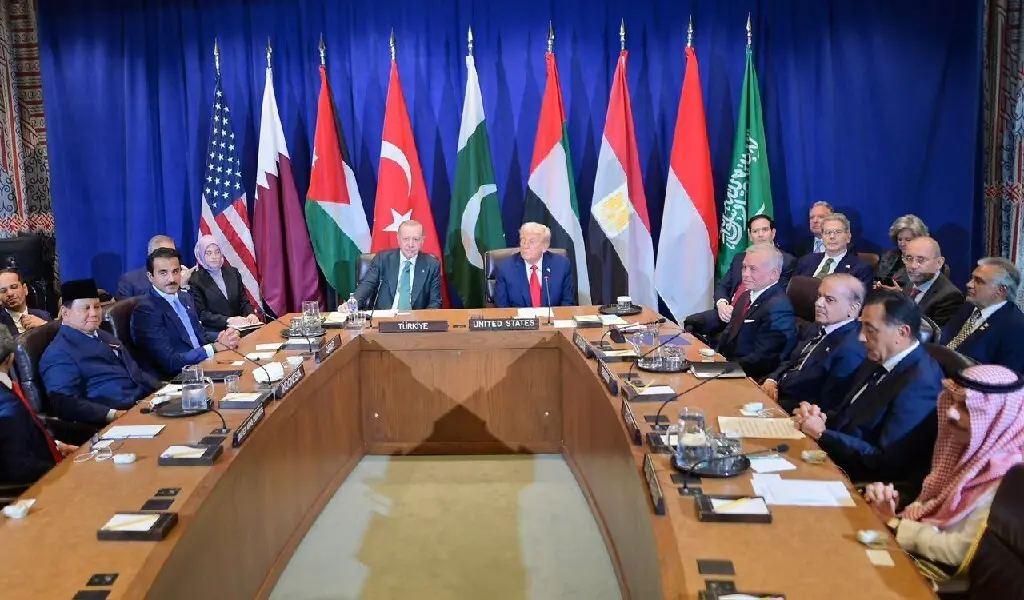Editorial
The sidelines of the 80th UN General Assembly witnessed a rare gathering: US President Donald Trump, together with Qatar’s Amir Sheikh Tamim bin Hamad Al Thani, convened leaders from the Arab League and the Organisation of Islamic Cooperation (OIC). The multilateral summit, attended by Prime Minister Shehbaz Sharif, King Abdullah II of Jordan, Türkiye’s President Erdoğan, Indonesia’s President Subianto, Egypt’s Prime Minister Madbouly, and senior leaders from Saudi Arabia and the UAE, carried one united message—Gaza must see an immediate ceasefire, humanitarian aid must flow, and the dignity of Palestinians must be preserved.
The joint statement was unambiguous in its rejection of forced displacement of Palestinians, while urging the release of hostages and the restoration of humanitarian corridors. Equally forceful was the emphasis on safeguarding Jerusalem’s holy sites and preventing further destabilisation in the West Bank. This reflects not only regional solidarity but also a recognition that Gaza’s suffering is destabilising the wider Middle East.
Importantly, the summit endorsed reforms within the Palestinian Authority and supported a reconstruction plan for Gaza based on Arab League and OIC frameworks. This is not simply about rebuilding infrastructure—it is about restoring legitimate Palestinian leadership that can anchor peace. By placing Palestinian voices at the centre, the summit challenged the narrative of imposed solutions that ignore the aspirations of those most affected.
The political weight of the gathering lay in the acknowledgement of Trump’s role. Arab and Muslim leaders, despite deep grievances with Washington’s past policies, chose to frame him as a potential broker of peace. Whether this is strategy or genuine hope remains to be tested. But it signals a pragmatic willingness to seize any window for de-escalation.
The Gaza war has already crossed catastrophic thresholds, with mounting casualties and displacement. If the promises of this summit are to mean anything, they must translate quickly into corridors of aid, diplomatic engagement, and a roadmap for Palestinian sovereignty. History will not judge the rhetoric—it will judge the action
















